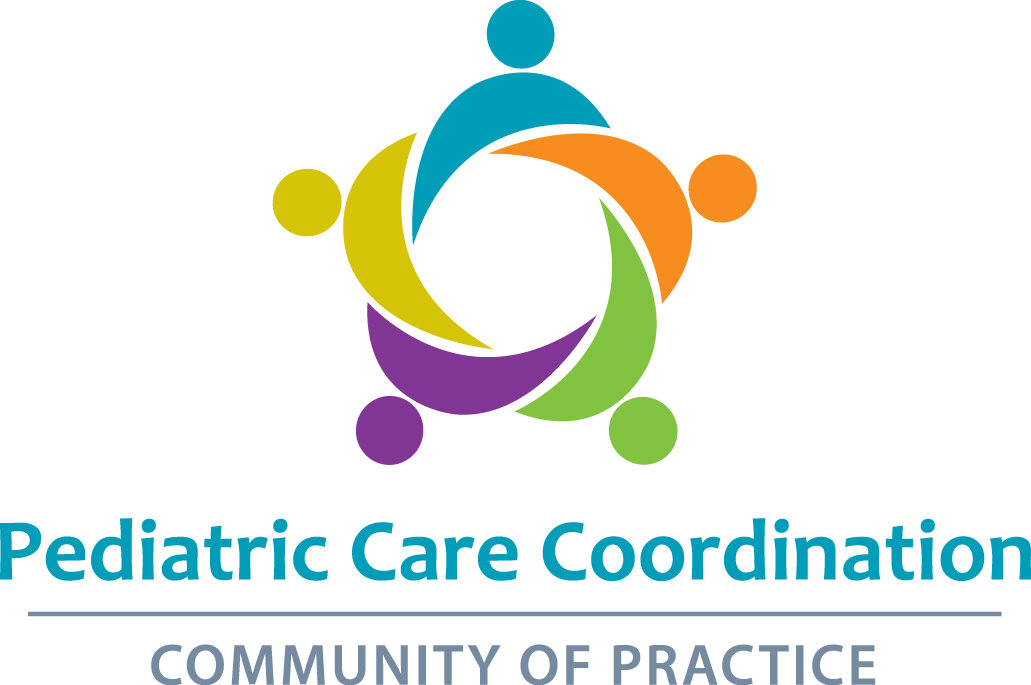Pediatric Care Coordination:
Community of Practice
Wednesday, October 13, 2021
This email includes useful resources and key takeaways from the two-part discussion, “The COVID-19 Pandemic and Mental Health: Caring for Ourselves and Supporting Children with Specialized Needs and Disabilities,” on August 24 and August 31, 2021. Look out for more eblasts coming soon!
Useful Resources:
Supporting Kids
Helping Your Child During the Pandemic
Parent/Caregiver Guide to Helping Families Cope With COVID-19 Pandemic
Helping Children with Traumatic Separation or Traumatic Grief Related to COVID-19
Helping Children Cope with COVID-19, Yale Child Study Center
Supporting Ourselves
Family Voices of Minnesota, Parent Groups
Caregiver Support Groups, Lutheran Social Service of MN
Caregiver Peer Support, Amherst H. Wilder Foundation
Online Peer Support for Healthcare Workers impacted by COVID-19
How to Create an Individualized Self-Care Plan
Disaster Distress Helpline (DDH) Online Peer Support Communities
Key takeaways about supporting children with specialized needs and disabilities
Impacts of the COVID-19 pandemic on kids’ mental health
Kids with disabilities and specialized health needs have been more impacted than their peers without disabilities or specialized health needs, although impacts have varied based on disability and needs
The pandemic has exacerbated preexisting mental and physical health challenges, and we’ve seen an increase in depression and anxiety
Deaf and hard of hearing youth have experienced communication and socialization challenges (e.g., lip-reading while masked, signing while social distancing)
Changes in daily structure and routine have negatively impacted some kids with specialized health needs, such as autism and anxiety
Loss of resources and support systems with sheltering in place or distance learning negatively impacts kids
Identify mental health warning signals in kids with specialized needs and disabilities
Changes in behavior, like becoming more withdrawn, different sleeping or eating patterns,
or ways that they talk or interact with others
Reverting to old behaviors kids had previously worked through
Avoiding activities or losing interest in things they use to enjoy
How to support the mental health of kids with specialized needs and disabilities
Make sure parents are aware of the mental health needs of their children
Keep in place as much routine and structure from before the pandemic and enhance and adapt routine as needed
Play outside, spend time in nature
Practice breathing, mindfulness, and visualization exercises with kids
Ask kids what they are thinking and how they are feeling
Explain things that are going on in the world at a level they can understand
Model how to take care of ourselves, because kids pick up on stress and anxiety
Maintain interaction with friends virtually, such as online games
Key takeaways about supporting ourselves
Signs of compassion fatigue
Impaired work/life balance
Unable to detach from your work-both mentally and physically
Work feels overwhelming
Struggling to say no, people pleasing driven by empathy
A change in your caring approach to others
Working to help others at the detriment of your own wellbeing
Trouble sleeping
Exhaustion and low energy levels
Loss of enjoyment in your work
Increased anxiety and frustration in your work
Signs of burnout
Sadness, apathy, or depression
Easily frustrated
Irritability
Lack of feelings
Isolation or disconnection
Poor self-care (hygiene)
Tired, exhausted, or overwhelmed
Feeling like a failure or that nothing you can do will help
Buffer your mental health by taking care of yourself
Self-Knowledge: Understand your compassion fatigue risks
Self-Examination: Self-monitor stress levels
Resources: Utilize individual, agency, and community support services
Expectations: Keep it real
Self-Care Strategy: Develop personal self care plan
Set boundaries to reduce stress
Setting boundaries is hard (we worry about the feelings of others)
Self-care means taking personal responsibility for your health
Self-care requires you to set boundaries (both physical and emotional)
Boundaries help you to manage stress
Monitor your stress to avoid moral injury
Seek out others to assist in making difficult choices when possible, and for support about circumstances that cause moral distress
Become more attentive to internal self-talk (turn the “I should have” into a “I did the best that I could have at that time”)
Take satisfaction in what can be accomplished, however small
Be more patient or kind with yourself!
The Pediatric Care Coordination: Community of Practice is a program coordinated by ACET Inc. under a grant funded by the Minnesota Department of Health. Opinions expressed herein do not necessarily represent the Minnesota Department of Health’s position or policy.
Feel free to share this newsletter with anyone who can benefit from the content provided within.
For more information, please contact info@acetinc.com or (952).922.1811.
ACET, Inc., Minneapolis, MN
